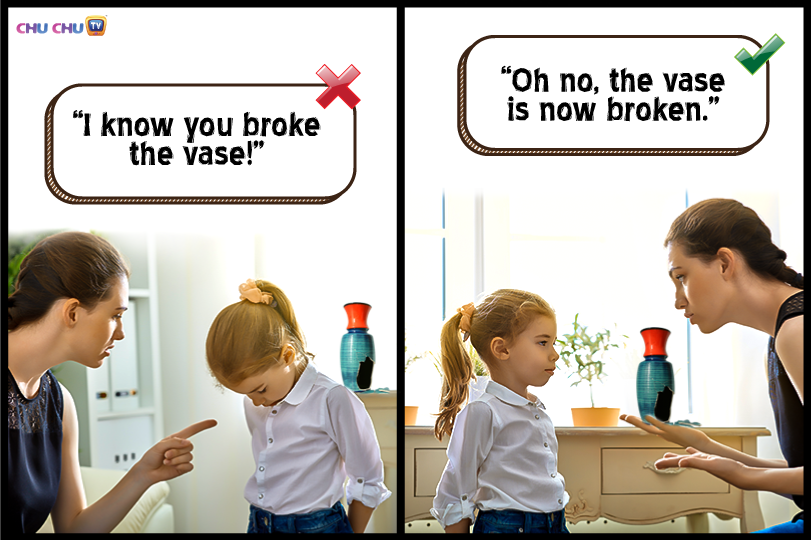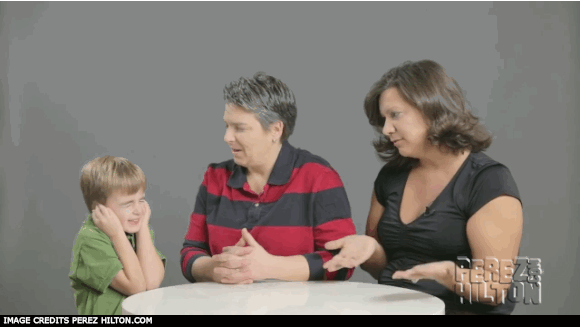A sheepish look, not meeting your eye, sweaty palms and fidgeting. Did you instantly relate to this and picture your 10 year old? If yes, then you’re probably wondering why your kid lies. Well, you aren’t the only one, but you may be oblivious to the fact that lying is completely normal, even though faulty. Everyone lies to some degree or another.A toddler may lie about seeing a dinosaur in the lawn. A ten year old may lie about finishing homework. A teenager, about alcohol or drug use and adults, about getting out of a parking ticket, or to get a free meal at a restaurant. Although lying is normal, consistent lies, especially about serious issues may turn your kid into a pathological liar. So what should you do as parents? How far is too far? Depending on the state, reason, and consequence of their lie, you can take a call on what measures are to be taken to avoid raising a liar.
1.Underlying Reasons:
Lying comes in different forms to different age groups. 3-5 year olds lie about having imaginary friends to get attention, or make tall tales just for kicks. Know that during this phase, your child is developing their sense of the world and are highly imaginative, so counter intuitively, this is a good sign. They don’t grasp the concept of lying; let alone reality from fiction, so take it easy. Teach them the difference between being truthful and being brutally honest, i.e. balancing compassion with truth. 5-10 year olds lie about things like homework, chores; to protect a sibling, or even due to peer pressure.They reach an important developmental stage when they grasp the concept of white lies; which is lying for a good deed. Their reason to lie otherwise, is usually not wanting to disappoint you, fear of punishment/failure, or using it as a problem solving skill. It’s important for you as a parent to consider why they felt the need to lie rather than being angry about the fact that they did.
2. Acknowledging Consequences:
Teach your kids about consequences of actions from an early age. When you catch them lying, use positive reinforcement to make them aware of its result. If your child broke a vase and won’t admit it, don’t say “I know you broke the vase!”, instead say “Oh no, the vase is now broken.”
Give them warnings, and mean them. If they choose to be honest after a warning, appreciate them for doing the right thing. Telling your kid that cotton candy is harmful for their teeth is not going to do it. Instead, tell them that cavities are extremely painful to bear or that you can’t afford a dental treatment right now. Restrict their candy, but don’t ban it. Adolescents, when confronted about consuming alcohol or smoking pot will tell you that it doesn’t cause harm to anyone but themselves. In such a case, make them understand that lying about it and keeping you in the dark hurts you because you raised them to be better than that. Their bodies indeed are ultimately their responsibility; however, if something were to happen to them it would cause you a large amount of distress and compromise that you don’t deserve.
3. Reaction Formation:
The ways in which you react to your children affects their personality. That’s why it’s important to address the behavior behind the lying rather than feeling betrayed about the lie itself. If your kid is using lying as a problem-solving skill, e.g. not being good at sports, so lying their way out of a PTA class, teach them constructive ways to solve these problems. Don’t lecture your kids because they tend to tune out and you will have addressed nothing. However, if your kid lies consistently, or lies about risky or unhealthy habits, the most effective way to deal with it is to hold an intervention, which will give you a chance to have a planned and constructed conversation about your kid’s lying behavior. It’s a good idea because you can express yourself without a cloud of anger hovering above you. Consider having a close, adult-family-friend accompany you if the other parent is absent. It’s always good to be prepared about the issues that you want to address beforehand. State what you have been observing, in a matter-of-fact way, and let them know that there will be consequences for their actions if the said behavior were to continue. Be emotionless, and decide your punishment; one that you will follow through.
4. A Positive Home-Environment:
A negative home environment can very well be a reason for your kid to use lying as a means to get away from it. Do your best to ensure that you provide a healthy and positive ambiance for your kid to develop and grow in. Avoid raising your voices or quarreling around them. You may think a few times don’t make a difference but on the contrary, it does. Another reason could be house rules that are too strict. Your 16 year old may not be allowed to wear make-up, but if all the kids her age do, she will lie to you about it and wear it outside of home. Allow your kids to experience things that are normal for them to experience. Don’t be too adamant on imposing your ideals, as this will only drive them to do the opposite.
5. Walk The Talk:
What your kid does or doesn’t do has a lot to do with your parenting skills. Whether you like it or not, you are responsible for your child’s character development. And sure society, peers, and virtual reality have a role to play; but how you curb your child’s habits and influence them at an earlier stage determines the kind of individual they will grow out to be. Make sure you walk your talk, which means—no more lying your way out of a parking ticket or speeding, lying about your kid’s age to get a free entry or a meal coupon, and so on. That said, there is only so much that a parent can do. Society has its ways of negatively influencing young minds; so if your teenage kid rebels, don’t be too hard on yourself. Do your bit and keep in mind that you are raising them to be a better version of you and society in general.
How do you deal with your children when they lie to you? We’d love to know! Tell us in the comments below.














Leave a Comment